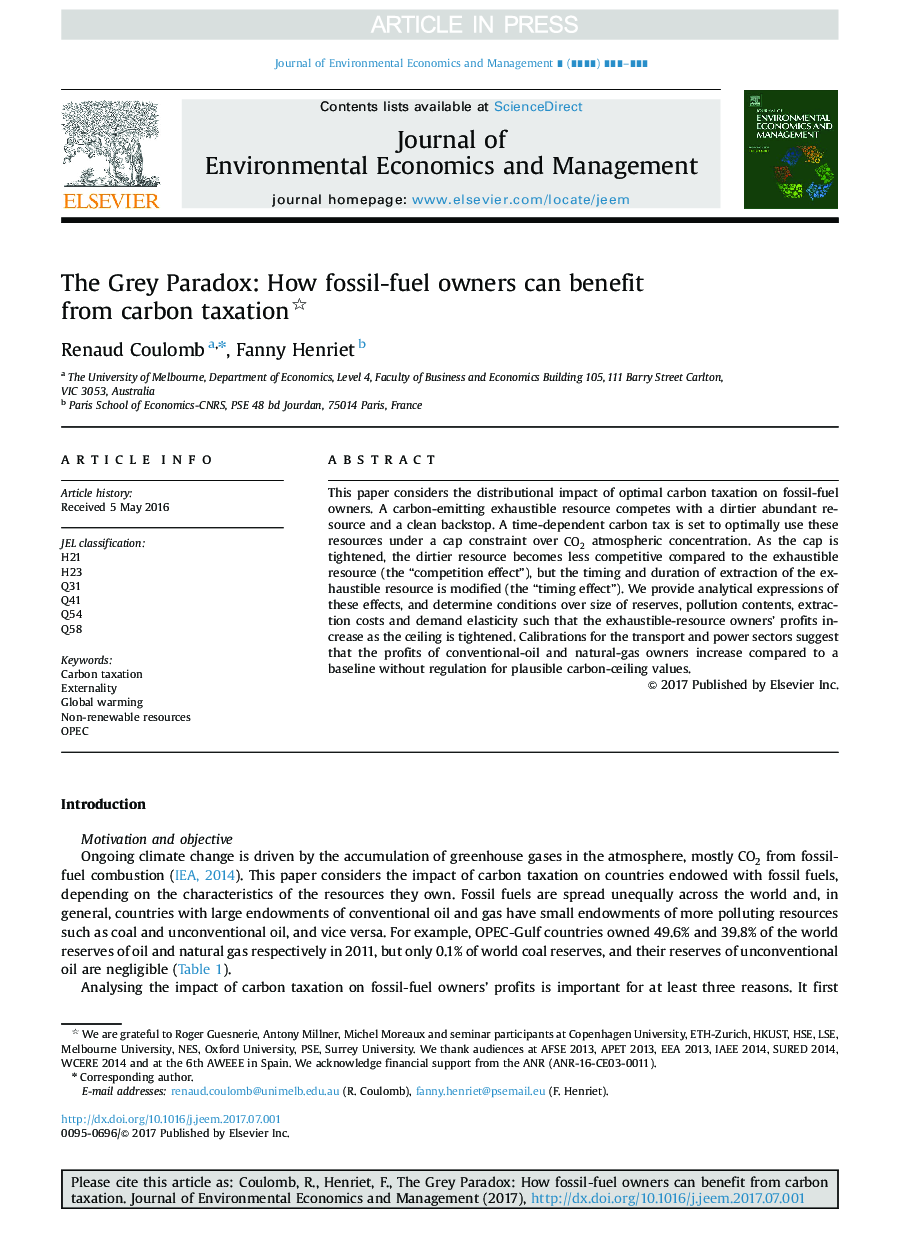| Article ID | Journal | Published Year | Pages | File Type |
|---|---|---|---|---|
| 7361494 | Journal of Environmental Economics and Management | 2018 | 18 Pages |
Abstract
This paper considers the distributional impact of optimal carbon taxation on fossil-fuel owners. A carbon-emitting exhaustible resource competes with a dirtier abundant resource and a clean backstop. A time-dependent carbon tax is set to optimally use these resources under a cap constraint over CO2 atmospheric concentration. As the cap is tightened, the dirtier resource becomes less competitive compared to the exhaustible resource (the “competition effect”), but the timing and duration of extraction of the exhaustible resource is modified (the “timing effect”). We provide analytical expressions of these effects, and determine conditions over size of reserves, pollution contents, extraction costs and demand elasticity such that the exhaustible-resource owners' profits increase as the ceiling is tightened. Calibrations for the transport and power sectors suggest that the profits of conventional-oil and natural-gas owners increase compared to a baseline without regulation for plausible carbon-ceiling values.
Related Topics
Social Sciences and Humanities
Economics, Econometrics and Finance
Economics and Econometrics
Authors
Renaud Coulomb, Fanny Henriet,
